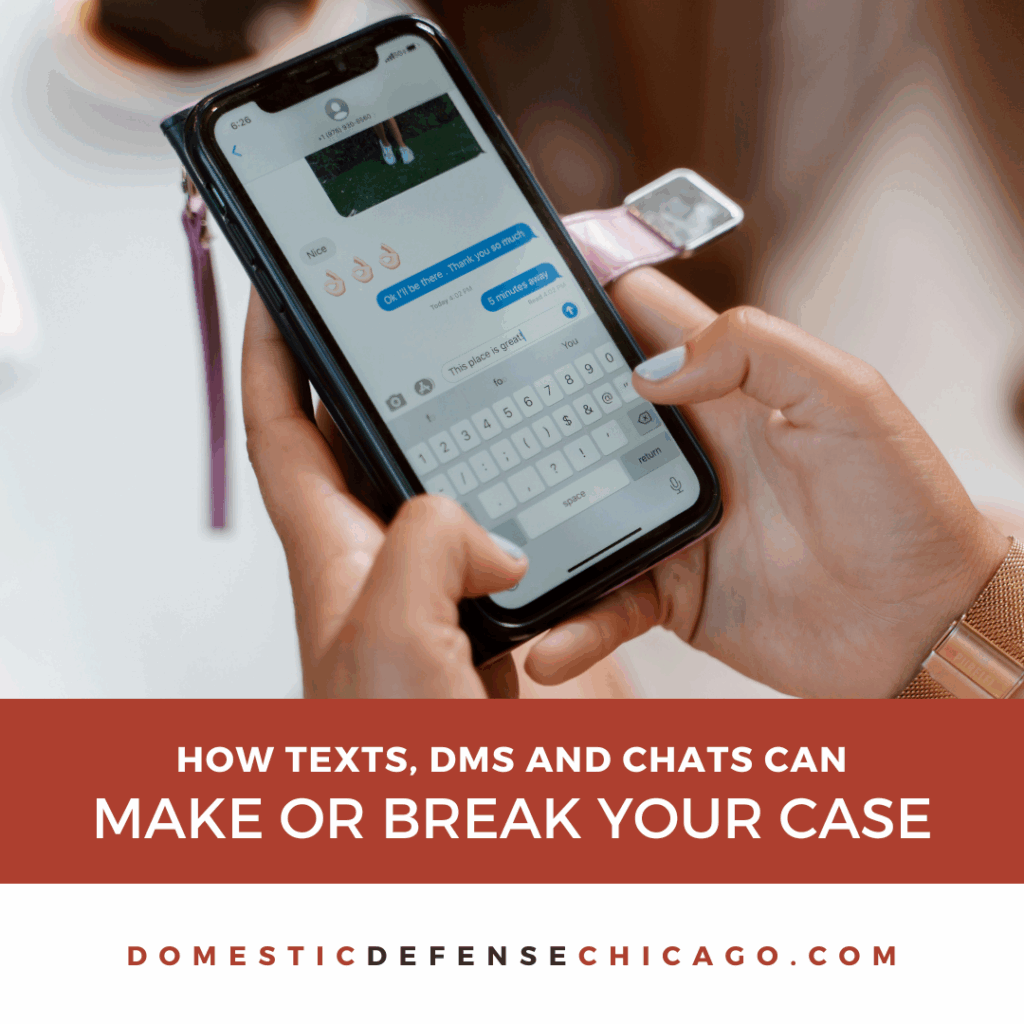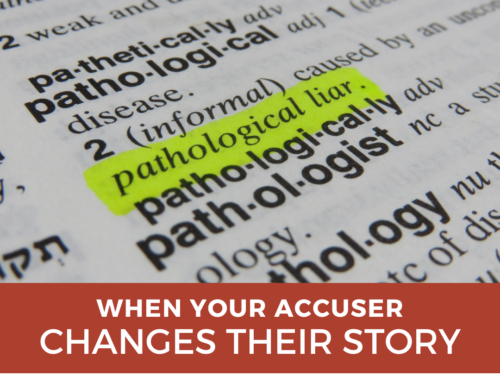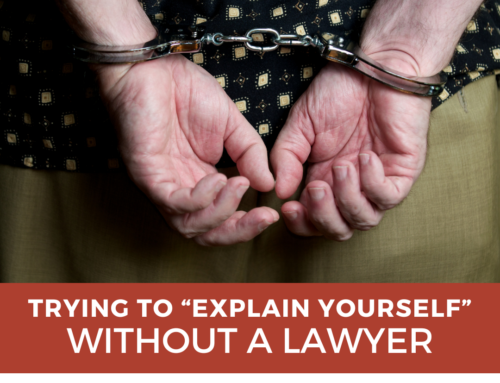When you’re facing a domestic battery charge, the evidence against you may not come in the form of fingerprints, eyewitnesses, or security footage—it might come from something as ordinary as your phone. Text messages, direct messages (DMs), and group chats have become a core part of modern evidence in criminal cases, and they can carry significant weight in a courtroom.
Whether they’re screenshots, chat logs, or recovered data, digital communications can influence how prosecutors, judges, and juries view your case. They can also work in your favor—if handled correctly. This is why having an attorney review and address this type of evidence can be essential to securing the best possible outcome.
Why Digital Messages Carry So Much Weight
Today, much of our personal and emotional lives unfold online or over our devices. In a domestic battery case, messages may be used to:
-
Establish a timeline – Messages can show when an interaction began, escalated, or ended.
-
Demonstrate state of mind – The tone, language, and timing of messages may be interpreted as intent or aggression.
-
Confirm or challenge an alibi – Location data and timestamps embedded in chats can corroborate—or contradict—someone’s account of events.
Courts take these messages seriously because they are timestamped, often stored in multiple locations, and sometimes backed up to cloud services, making them seem more “reliable” than verbal recollections. But context is key—and without proper context, messages can easily be misread.
How Texts and DMs Can Be Misinterpreted
One of the biggest challenges with digital communication is that tone rarely translates perfectly. A sarcastic or joking comment might appear threatening when read in isolation. Similarly, an emotionally charged exchange can seem more volatile without the broader context of the conversation.
For example, if an argument was resolved peacefully but only the heated portion is presented, the situation may look far more incriminating than it really was. In other cases, messages may be altered, taken out of sequence, or combined with unrelated conversations to create a misleading narrative.
This is where an attorney’s role becomes crucial—not to promise a result, but to help ensure that the evidence is presented with full and accurate context.
Group Chats: The Double-Edged Sword
Group chats can complicate things even further. They introduce:
-
Multiple perspectives – Friends or family members in the chat may add their own commentary, which can influence how a conversation is perceived.
-
Unverified participants – It’s not always clear who exactly is behind every message in a group chat, especially if devices are shared.
-
Private jokes or nicknames – These can be misinterpreted by someone unfamiliar with the group’s dynamics.
If group chat messages are presented as evidence, it’s not just what you said that matters—how others respond and how the conversation unfolds can also influence the perception of your involvement.
The Role of Metadata
Beyond what’s written, digital communications come with hidden layers of information called metadata. This includes:
-
Timestamps down to the second
-
Sender and recipient details
-
Device information
-
IP addresses or location data
Metadata can be used to verify or challenge the authenticity of a message, but it can also reveal sensitive details you might not expect. For example, even deleted messages may leave metadata traces that can be recovered and presented in court.
Understanding how metadata works—and how it may be used—is something a defense attorney can help navigate.
Why You Should Avoid Handling Digital Evidence Alone
If you’ve been accused of domestic battery, it can be tempting to try and “explain away” the messages yourself or provide them directly to law enforcement in hopes it will clear things up. Unfortunately, this can sometimes backfire.
-
You might accidentally provide incomplete or out-of-order conversations.
-
Screenshots may be challenged if they’re not properly verified.
-
Even well-meaning explanations can be twisted or used against you.
An attorney can help determine the most strategic way to address text or chat evidence and may be able to challenge how it was obtained or interpreted. The goal is not to make promises about winning or losing but to put you in the best position possible under the circumstances.
Chain of Custody and Authenticity
One major issue with text and chat evidence is proving authenticity. Courts generally require a clear chain of custody, meaning there must be a reliable record of where the evidence came from, who handled it, and whether it’s been altered in any way.
In some cases, messages presented by the prosecution may be missing context, have gaps, or lack verification that they came from your device. An attorney can request the full records, have them analyzed, and question whether the evidence meets the required standard for admissibility.
For more on how courts view digital evidence and authentication, you can review this U.S. Courts guide to electronic evidence.
When Messages Help the Defense
Not all texts, DMs, and group chats are harmful to your case. In fact, they can sometimes:
-
Show de-escalation attempts
-
Prove you were not present at the time of the alleged incident
-
Provide evidence of mutual consent or misunderstanding
-
Highlight inconsistencies in the accuser’s story
An attorney can identify which parts of your digital history may help establish a more complete and truthful picture of events.
The Legal Landscape in Illinois
Domestic battery laws in Illinois carry serious consequences, including potential jail time, probation, and long-term impacts on employment and housing. The Illinois General Assembly’s site offers a full breakdown of the Illinois Criminal Code on domestic battery, which explains how charges are classified and prosecuted.
Understanding these laws is important, but applying them effectively to your situation is where legal guidance matters most.
Working With an Attorney
Every domestic battery case is unique, and no one—not even the most experienced lawyer—can guarantee an outcome. However, an attorney can analyze the role that texts, DMs, and group chats play in your case and help you pursue the best possible resolution.
They can:
-
Review the full context of digital conversations
-
Challenge questionable evidence or gaps in the record
-
Ensure admissible messages are presented in the most accurate light
-
Negotiate with prosecutors based on the strength of your defense
The stakes are too high to navigate this process alone. Even if the messages seem harmless to you, they can take on an entirely different meaning in a legal setting. Having a lawyer on your side means having someone who understands both the law and the unique dynamics of digital communication in domestic battery cases.
Do You Need to Talk to an Attorney About Domestic Battery Defense?
If you need to talk to a domestic battery defense attorney in Illinois, we’re here to help. Call us at 847-920-4540 now – we’ll be happy to give you a free consultation and talk to you about your options.







Leave A Comment
You must be logged in to post a comment.